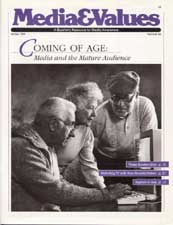FAMILY: Oral Histories Harvest Family Heritage
|
This article originally appeared in Issue# 45
|
Have you ever wished you had asked a grandparent or favorite aunt some questions about their unique experiences?
Media now provide families with a variety of opportunities to capture the moment. In addition to written journals and photographs, audiocassette recorders and video cameras can preserve family stories and the treasured personas of loved ones. The immediacy of a grandparent or other relative's voice and/or image is special indeed.
All family members can be involved in preparing an oral history. Gather two or more family members (the more the better) around a cassette recorder or video camera. Questions that stimulate stories and detailed recollections will spark the most memories:
- What was life like when you were a child? What do you remember best from the year you were seven? Ten? Sixteen?
- How did you celebrate family holidays like Thanksgiving, Christmas, birthdays, Hanukkah or Easter?
- What did you and your family do to entertain yourselves before television was invented?
- Who was your hero or heroine?
- How did you meet your spouse?
- What are your most treasured memories of your parents, sisters and brothers or other family members?
- Ask the interviewee to sing, play or tell stories, songs or musical pieces he or she grew up with. If you're using a video, they may demonstrate a dance, craft technique or special skill. Recounting or demonstrating a favorite family recipe on audio or videotape is often the best way to record it. And teaching it on tape to the youngest generations will add a special touch of young and old together.
Setting aside plenty of time for the recording process will help reassure a nervous older relative. If you relax and let the session unfold at its own pace, the chances are good that everyone involved will forget the equipment. The spontaneity and enjoyment of a family remembering session can become a precious gift for everyone involved.
Memories and shared family heritages are irreplaceable. The process is fun, and it gives a sense of continuity to everyone from age two to 92.



